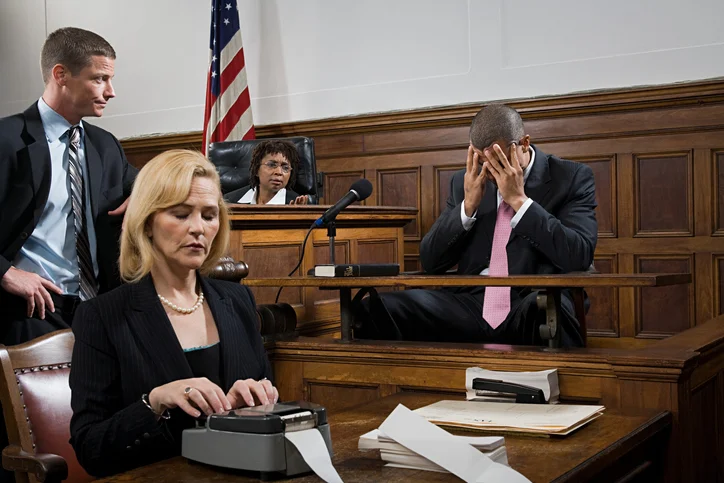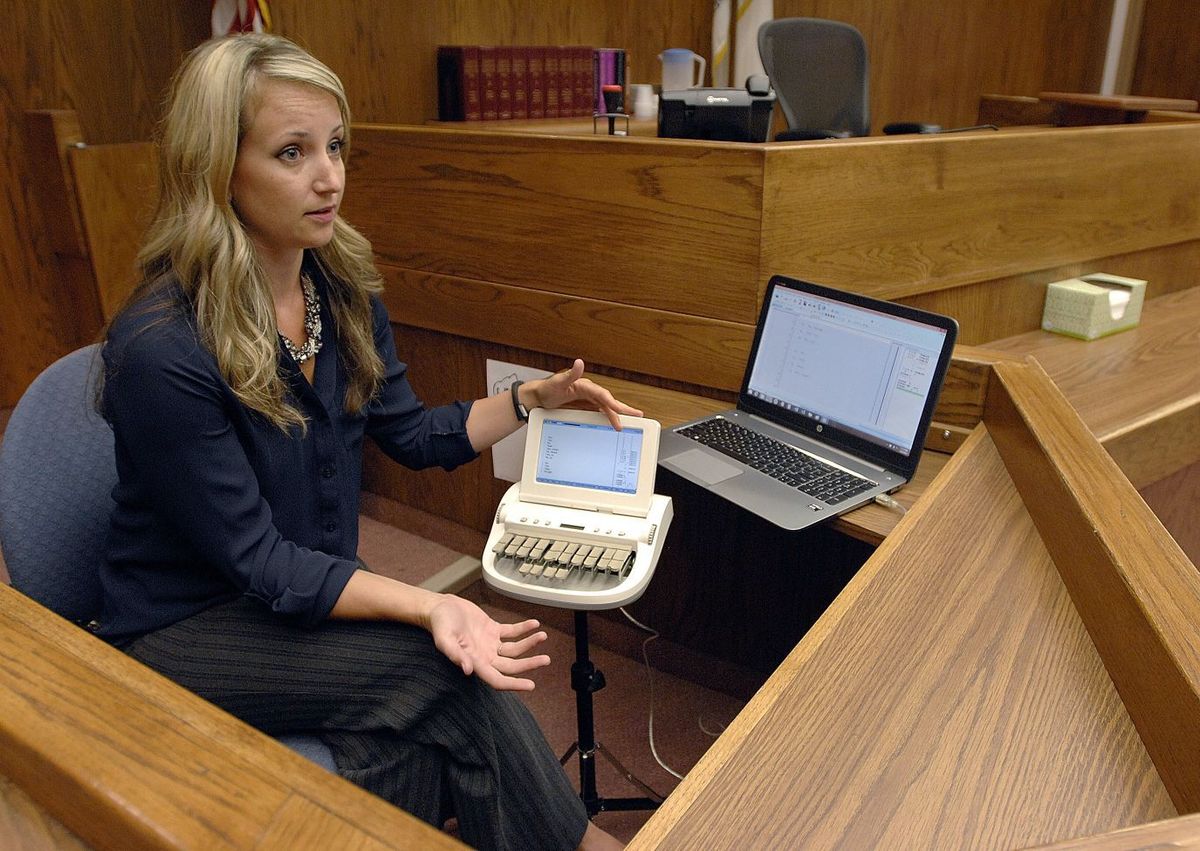Court Reporting Providers for Depositions, Trials, and Hearings
Court Reporting Providers for Depositions, Trials, and Hearings
Blog Article
Understanding the Value of Court Coverage in Legal Services and Procedures
Court reporting plays a critical role in the legal landscape, serving as the foundation of accurate documents in different legal procedures. By giving verbatim records, court reporters guarantee that every testament and debate is thoroughly captured, thus guarding the honesty of the judicial process.
Function of Court Reporters

Along with transcription, court press reporters are commonly entrusted with managing and preserving the circulation of procedures. They need to be efficient in lawful terminology and have a detailed understanding of court room protocols to make sure that the record reflects the context and subtleties of the discussion. Their job may additionally expand beyond conventional courtrooms, incorporating administrative hearings, settlements, and other legal settings where documents is necessary.
Furthermore, court reporters might supply real-time reporting, enabling prompt accessibility to records during proceedings, which can be essential for the reliable management of justice. By making certain that a specific document is maintained, stenotype reporter copyright the integrity of the legal process, offering and helping with allures as a necessary resource for lawful professionals in their search of justice.
Importance of Precision

The duty of precision extends beyond mere transcription; it includes the capacity to catch the subtleties of speech, consisting of tone, focus, and non-verbal cues, which can be essential in comprehending the context of declarations made. An exact document makes certain that all events involved-- courts, courts, and lawyers-- have access to the same information, fostering justness and openness in the judicial procedure.
In addition, exact transcripts are essential for the appellate procedure, where greater courts depend on them to examine lower court decisions. Inaccuracies can jeopardize the end result of an allure, possibly impacting a celebration's rights and flexibilities. Hence, the dedication to precision in court reporting is not simply a specialist commitment however a cornerstone of justice that maintains the rule of law.
Types of Legal Process
Treatment a broad array of lawful contexts, court press reporters are necessary in different sorts of lawful proceedings, each calling for unique methods and abilities. Amongst the most usual types are civil lawsuits, criminal tests, and administrative hearings. In civil lawsuits, stenotype reporter record activities, testimonies, and depositions, ensuring that every information is documented properly for prospective allures or settlements.
In criminal tests, the role of stenotype reporter becomes much more essential, as they transcribe all facets of the proceedings, consisting of court selections, witness testaments, and sentencing phases - Court Reporting. The precision and immediacy of these documents are critical, offered the potential repercussions for offenders and the integrity of the judicial system
Management hearings, often conducted by governmental agencies, likewise depend on stenotype reporter to preserve main documents of proceedings. like it These hearings can include conflicts pertaining to regulatory compliance, work issues, or expert licensing, requiring specific documentation.
Additionally, specialized procedures such as mediation and arbitration require stenotype reporter to capture the nuances of settlements and arrangements. Each type of legal action provides one-of-a-kind obstacles, emphasizing the importance of skilled court reporters in promoting the honesty of the legal procedure.
Modern Technology in Court Reporting
Innovations in technology have actually changed the area of court coverage, improving both effectiveness and precision in the transcription process. Conventional methods of manual note-taking have actually been supplemented and, in some cases, replaced by advanced electronic tools that improve workflows and improve precision (Court Reporting). Stenotype reporter currently use sophisticated steno makers geared up with real-time transcription abilities, enabling immediate accessibility to a verbatim account of proceedings
In addition, the combination of speech recognition software has actually additionally transformed the coverage landscape. This innovation makes it possible for the automatic transcription of talked words, considerably decreasing the moment required for producing main records. Additionally, cloud-based systems help with very easy storage space and retrieval of transcripts, ensuring that legal professionals can access crucial papers from anywhere, any time.
Video clip conferencing tools have actually also arised as important elements in remote depositions and hearings, aiding court reporters catch procedures in real-time, no matter place. The mix of these technological developments not only boosts the accuracy of lawful documentation but additionally supports an extra efficient and adaptable lawful process. As the area remains to develop, embracing these improvements will be vital in meeting the growing needs of the lawful industry.
Moral Factors To Consider in Reporting
The assimilation of innovation in court reporting brings with it a collection of ethical factors to consider that specialists must navigate meticulously. As court reporters progressively utilize electronic tools, issues surrounding integrity, discretion, and accuracy pertain to the center. Protecting sensitive information is critical; reporters need to make certain that any kind of digital documents are firmly stored and shared only with authorized individuals.
Moreover, the accuracy of transcriptions is crucial. Using software application for real-time reporting does not absolve court reporters from the obligation of guaranteeing that the end product is exact. Honest obligations dictate that any mistakes have to be without delay dealt with and connected to pertinent celebrations.

Lastly, conformity with legal criteria and market regulations is crucial. Stenotype reporter should remain informed concerning developing ethical standards to support the trust fund put in them by the lawful system. By dealing with these moral considerations, court press reporters can remain to give vital services in legal Our site process while maintaining public self-confidence.
Final Thought
In conclusion, court reporting plays a crucial duty in the lawful system by making certain accurate and trusted paperwork of judicial procedures. The careful job of court press reporters maintains the honesty of the lawful procedure and sustains the legal rights of people included.
Court coverage plays an essential function in the lawful landscape, offering as the foundation of precise paperwork in different legal proceedings.Court reporters consistently play a vital role in the judicial procedure by developing exact, verbatim records of legal proceedings.Moreover, exact records are crucial for the appellate procedure, where higher courts rely on them to review reduced court choices.Covering a broad array of lawful contexts, court press reporters are vital in different types of lawful process, each requiring unique techniques and skills. By addressing these ethical factors to consider, court reporters can continue to give vital services in legal process while preserving public confidence.
Report this page